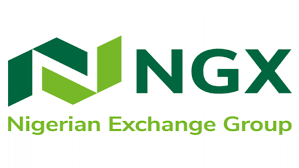Latest report of the Global Investment Trends Monitor of United Nations Conference on Trade and Development (UNCTAD) has revealed that despite a 13 per cent drop in global capital importations in 2016, inflows to Nigeria recorded an uptick closing the year at $4 billion from $3.1 billion.
The development according to the report forced Nigeria to experience a ten year drop in FDIs.
UNCTAD said “This was the lowest value since the (data) series started in 2007, which reflects the numerous economic challenges that afflicted Nigeria in 2016”.
Analysts say Capital Importation comprises of three main investment types, namely Foreign Direct Investment (FDI), Portfolio Investment and other investments.
But for Nigeria to effectively turn around the trend, the UN body warned that there are significant uncertainties that could have a material impact on the scale and contours of any FDI recovery in 2017 even though the federal government has concluded plans to release an economic recovery plan this month.
The NBS said Nigeria imported the bulk of its capital from Britain, the U.S. and Netherland, with the telecoms, banking and oil sectors the main beneficiaries.
UNCTAD said “The “normalization” of monetary policy in the United States after nearly a decade of historically low interest rates could result in a significant shift in composition of capital flows, with implications for exchange rates and financial systems throughout the world and especially for developing economies.
“Rising cost of capital may hinder investment by multinational enterprises which have taken on significant levels of corporate debt in recent years. There is also substantial uncertainty about the shape of economic policies in the near-future, especially in developed economies, which may serve to dampen FDI”.
“This was the lowest value since the (data) series started in 2007, which reflects the numerous economic challenges that afflicted Nigeria in 2016,” the statistics office said.
Additional figures issued by the body recalled that equity investments from portfolio investors and direct investment rose sharply from 2012 to 2014, at a time when Nigeria was one of the fastest growing economies in the world and a top destination for investment.
However, a sharp drop in the price of crude oil, Nigeria’s main export, from mid-2014, slashed government finances, weakened its economy triggering a recession and battered its currency, frustrating business and leading investors to flee its markets.
“A key concern for policymakers continues to be how to reactivate productive investment in their economies to generate employment and spur advances in productivity.
Before the UN report, Nigeria’s NBS had disclosed that portfolio investments fell the most in 2016, deterred by the recession and the currency, down by 69.8 per cent from 2015, as investors weighed market conditions relative to expected returns.
Also affected was the Nigeria’s stock market which fell 6.2 per cent last year while the naira lost a third of its official value against the dollar. In 2017, stocks have continued to fall, down 3.1 per cent so far, while the naira is almost 40 per cent weaker on the black market and its still on the losing spree.









